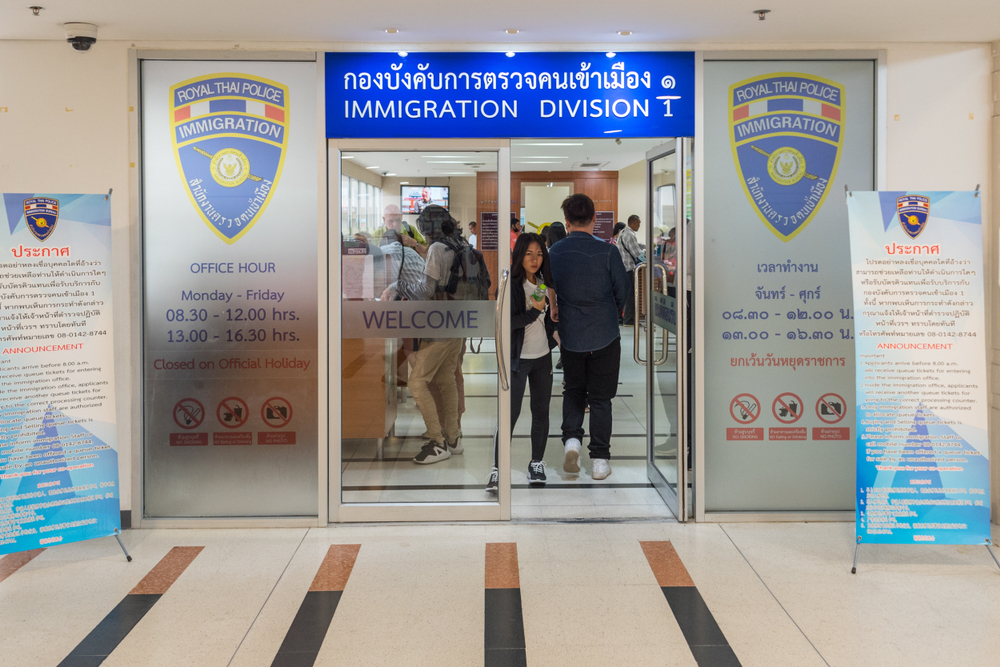
The Thai Non-immigrant Visa is the type of visa you need if you want to live in Thailand for a long term or if you have a reason to stay other than tourism or transit. For example, if you want to study, work, invest, receive medical treatment or join your Thai spouse, you need to apply for a Non-Immigrant Visa. Then, you have to apply for the type of Non-Immigrant Visa that is suited to your purpose of travel as everyone who wants to travel to Thailand has to apply for one.

There are a number of countries whose nationals are exempt from a Visa for tourism purposes but even those nationals need to apply for a Non-Immigrant Visa categorized into the following types:
The Category F of the Thai Non-Immigrant Visa is issued to the foreigners who hold an ordinary passport and who are traveling for official duties, such as work with a government agency, embassy or consulate, an international organization or a state enterprise in Thailand.
The Thailand Non-Immigrant Visa B is issued if one is traveling to conduct business (Thai Business Visa) or for working for a Thai company or work as a teacher in a school (Thai Work Visa).
A Thai Non-Immigrant Visa IM is issued if you want to travel to Thailand for investment purposes, provided that you have the approval of the relevant Thai Ministries and Government Departments.
The Thai Non-Immigrant Visa ED is issued for educational purposes. For example, if you have been accepted into a Thai educational institution, and you want to study there, you have to apply for a Thai Non-Immigrant Visa ED (see Thailand Student Visa). You can also apply for a Non-Immigrant Visa ED if you take part in a project or seminar, attend a conference or training course, etc.
The Thai Non-Immigrant Visa M is issued to members of the media. You can apply for this type of visa if you will work in Thailand as a film producer, journalist or reporter. As a film producer, you need prior approval from the Thailand Film Office, and as a journalist or reporter, you have to get approval from the Department of Information of the Thai Ministry of Foreign Affairs.
The Thai Non-Immigrant Visa R, also referred to as a visa “R-A” is issued for religious purposes. You need this type of visa if you are traveling to Thailand to do missionary work or other religious activities with the approval of the relevant Thai Ministries or Government Departments.
The Thai Non-Immigrant Visa RS is issued to foreigners traveling to Thailand to conduct scientific research or to train and/or teach in a research institute in Thailand.
The Thai Non-Immigrant Visa EX is issued to highly-skilled foreigners who are traveling to Thailand to work as experts and categories.
The Thai Non-Immigrant Visa O is issued for the following reasons:
The Non-Immigrant Visas O-A and O-X are both Thai Retirement Visas. The difference between the two is that:
Thailand Non-Immigrant Visa Requirements:
When you submit a Thai Non-Immigrant Visa application, you need supporting documents, such as:
if they do not cover your eyes and do not have heavy frames
You have to apply for a Thai Non-Immigrant Visa from a Thai Embassy or Consulate in your country.
Note: If you are already in Thailand on another type of visa, you can apply to change the category to another type of Non-Immigrant Visa at the Thai Immigration Department in Bangkok.
After you enter Thailand using your Non-Immigrant Visa, depending on the purpose for which you got it, you have to submit a 90-Day Report to the Thai Immigration authorities. This means that every 90 days that you continue to live in Thailand, you have to go to your local office of the Thailand Immigration Department and report your current address, even if it has not changed.
The only exception is in the case of the Thai SMART Visa, where the holders have to report their stay annually, rather than every 90 days.
Non-Immigrant Visas are usually issued for a maximum of 90 days. So, if you want to stay longer than that, then you have to get a one-year visa extension from the Bureau of Immigration in Bangkok. Before the visa extension expires, you can re-apply for another one-year extension, if you meet the requirements to continue living in Thailand. Once you have lived in Thailand through Visa Extensions for at least three years, you may be eligible for Thailand Permanent Residency.
Applying to Get a Re-Entry Permit:
After you extend your visa, you also have to apply for a Re-Entry Permit, in order to be allowed to leave and re-enter Thailand without your visa becoming void. If you do not get a Re-Entry Permit before you leave Thailand, you will have used up your single entry and you won’t be allowed back in unless you get another visa.
The Thailand Re-Entry Permit can be issued for a single entry or for multiple entries.
The duration of a Thailand Non-Immigrant Visa depends on what type of visa you’re applying for. They can be issued for the following durations:
The processing fee for a Thai Non-Immigrant Visa changes depending on several factors, such as the local currency, the duration of the visa, and the Embassy/Consulate to which you apply.